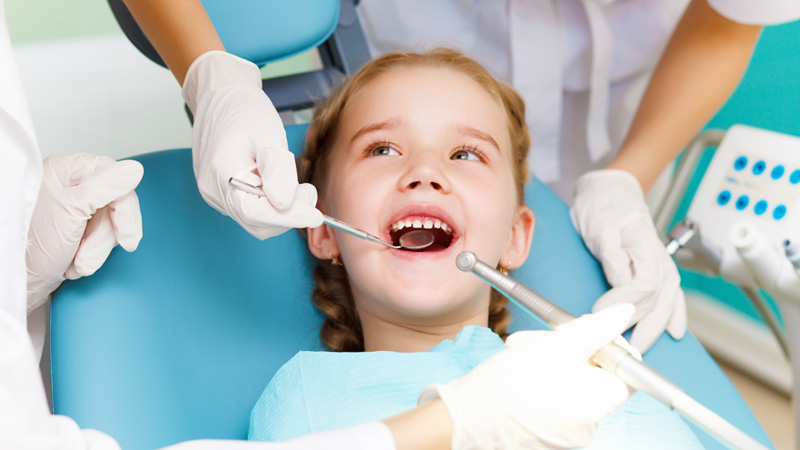6 Ways To Teach Your Children About Good Dental Health As They Grow Up
Chances are, as a child, you have been taught that good oral hygiene starts with brushing your teeth. Soon, it became a part of your daily routine. However, the benefits of good dental health surpass fresh breath. It’s also known to prevent certain gum diseases. Furthermore, it will also save future dental expenses because it reduces the likelihood of forming cavities that will need filling, it’ll prevent the need to get dentures or crowns, and significantly reduce the risk of undergoing root canals and oral surgery.

The famous adage, ‘prevention is better than cure,’ truly applies in this situation. Aside from that, good oral health will result in an overall physical well-being because the risks of contracting illnesses like cancer, stroke, heart diseases are lowered.
Instilling good oral hygiene in your children early on is one of the essential parts of parenthood. When your children enjoy their healthy dental habits, it doesn’t have to be a daily struggle for you.
Here are some tips that you can try to help build your children’s interest and understanding regarding the importance of good dental health:
- Make It Fun
When teaching your kids to take care of their dental health, incorporate play into your lessons. Children are most likely to learn if they’re engaged with it. Treat it as if you’re playing a game with them. It’s recommended that kids should brush their teeth at least twice a day for about two minutes every time.
You can sing a silly song to serve as a timer for the duration of their brushing time. Moreover, it would be a great idea to sing their favorite song so they’ll be highly engaged while doing it.
You can also buy them oral care products designed for their age. This often features different colors, cute designs, or even their favorite cartoon characters. It would also be best if it comfortably fits inside their mouth to make it easier for them to do a thorough brushing. In addition, you can also opt for colorful non-fluoride toothpaste with their favorite flavor so they can enjoy using it. This will make them look forward to every brushing session.
- Encourage Them To Eat Healthily
Sugar is the primary cause of many health-related issues, and this includes tooth decay. Sugary snacks like candies, chocolates, and ice creams can lead to many oral health issues for both children and adults. Children, if left unattended, will eat these sugary foods, which can lead to cavities. In the worst-case scenario, they will be required to undergo tooth extraction.
Parents are recommended to prevent their children from eating sugary foods at an early age. This will ultimately lower the risk of them getting long-term dental health issues while avoiding other chronic diseases too. Instead, eat a varied diet consisting of fruits and vegetables so their teeth won’t have to pay the price.
- Start Early
Parents are recommended to begin teaching dental health lessons to their children as early as their teeth start growing. Since it’s their first time, use a clean and soft washcloth and be gentle when scrubbing their teeth. By being gentle, they can be relaxed when they’re getting their mouth clean. This will encourage them to brush their teeth every day.
Once they’re old enough to understand what you’re saying, you can walk them through the entire process. Doing this can make them feel you trust them to do a simple task. It will be exciting for them if you treat them like a grown-up. It gives them a sense of belonging that most small children need.
- Teach Them By Doing It Yourself
You can’t expect your child to have good dental hygiene if you’re not leading by example. While it’s essential to focus on your child’s dental health habits, you shouldn’t slack on yours. If your child sees you practice good dental habits, they’re most likely to follow you. Brush and floss your teeth daily to be a good role model.
If you have multiple children and you’re in the process of teaching your youngest to practice good dental habits, you may recruit your oldest child to be an additional role model. Children like to mimic adults or someone older than them, so it’s essential to start with you to guide them.
- Reward Their Consistency
Children thrive in learning if you’re using positive reinforcements. While it’s easier for a parent to antagonize dental procedures, this habit of forcing them to do a thing can do more harm than good. It’s essential to unlearn this as a parent and employ positive reinforcements in your children. Otherwise, they might not cooperate with your dental health lessons. Instead of talking about dental procedures, praise them for doing a job well done when they follow through with your lessons. You can use a chart showing their progress. You can also add stickers to their chart if they finish their dental maintenance every night. Doing this can lessen their overall fear of dental procedures or visiting the dentist.
- Find A Qualified Pediatric Dentist

The most important tip is finding a qualified pediatric dentist. Pediatric dentists are specialists dedicated to maintaining children’s dental health. They work on and care for children’s teeth and mouth throughout the different stages of childhood. They completed four years of dental school and two years in residency training dealing with infants, children, and teens. That’s why they know how to make a child comfortable so they won’t dread their next dental check-up. You can find them in a different family dental health centre because they prioritize caring for children.
Final Thoughts
Instilling good dental habits in your children shouldn’t be that hard as they grow up. As long as they brush their teeth, floss, and get regular dental check-ups, they are destined to maintain good dental health that will last in their lifetime. It would be best to start early because learning is best done when they’re young and receptive to lessons. Following the tips above would ensure your child avoids many dental health issues in the future.



